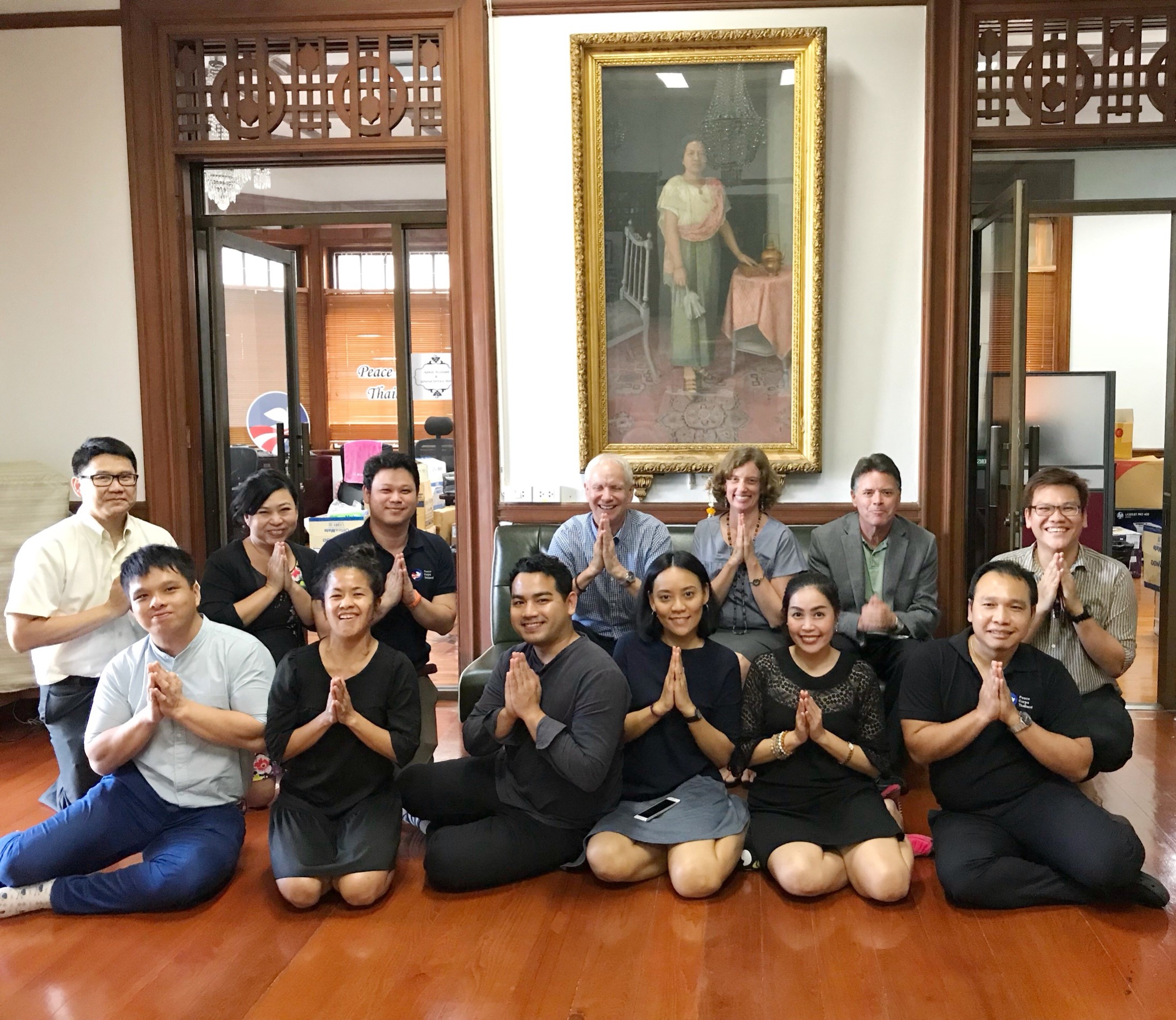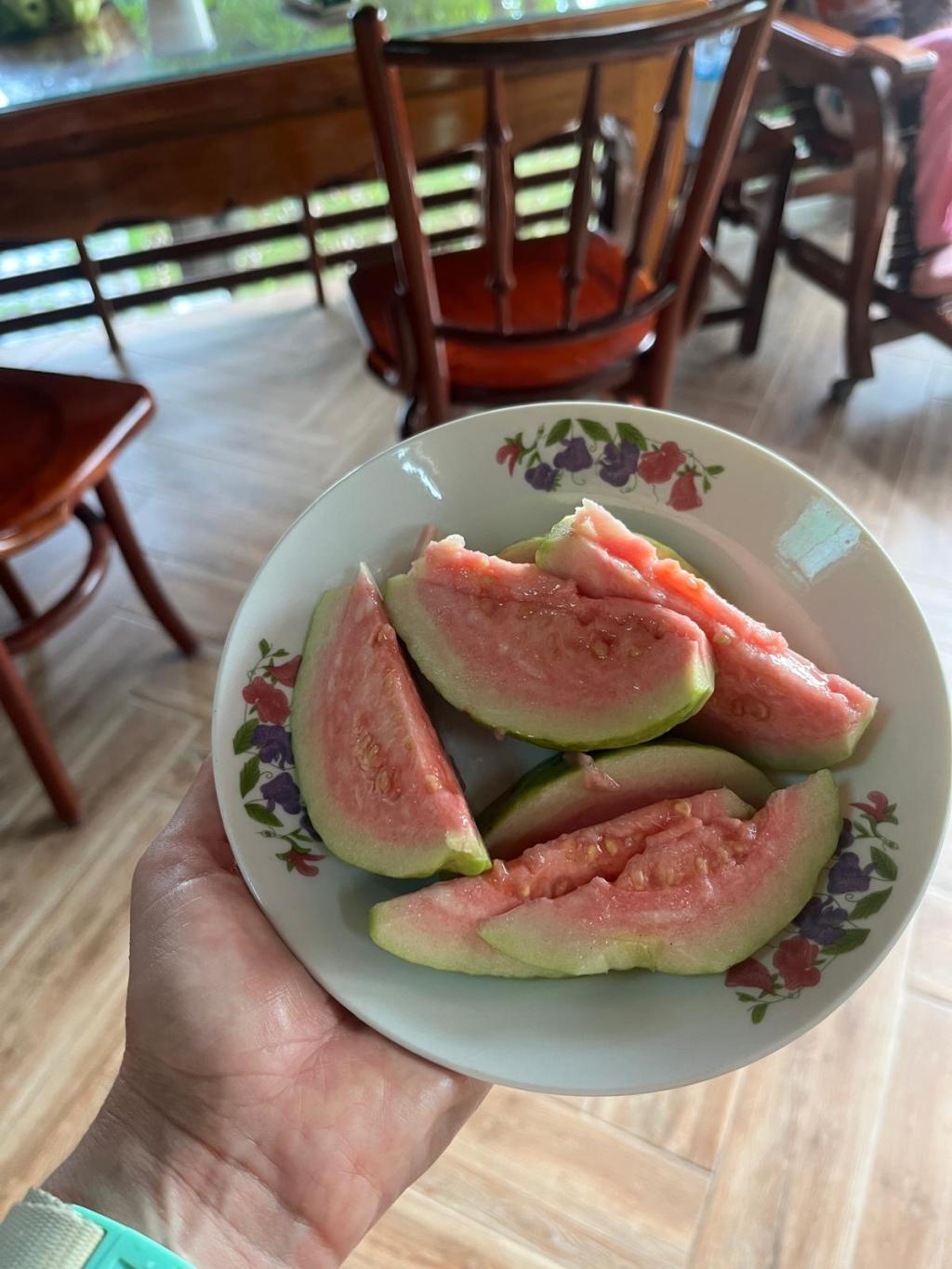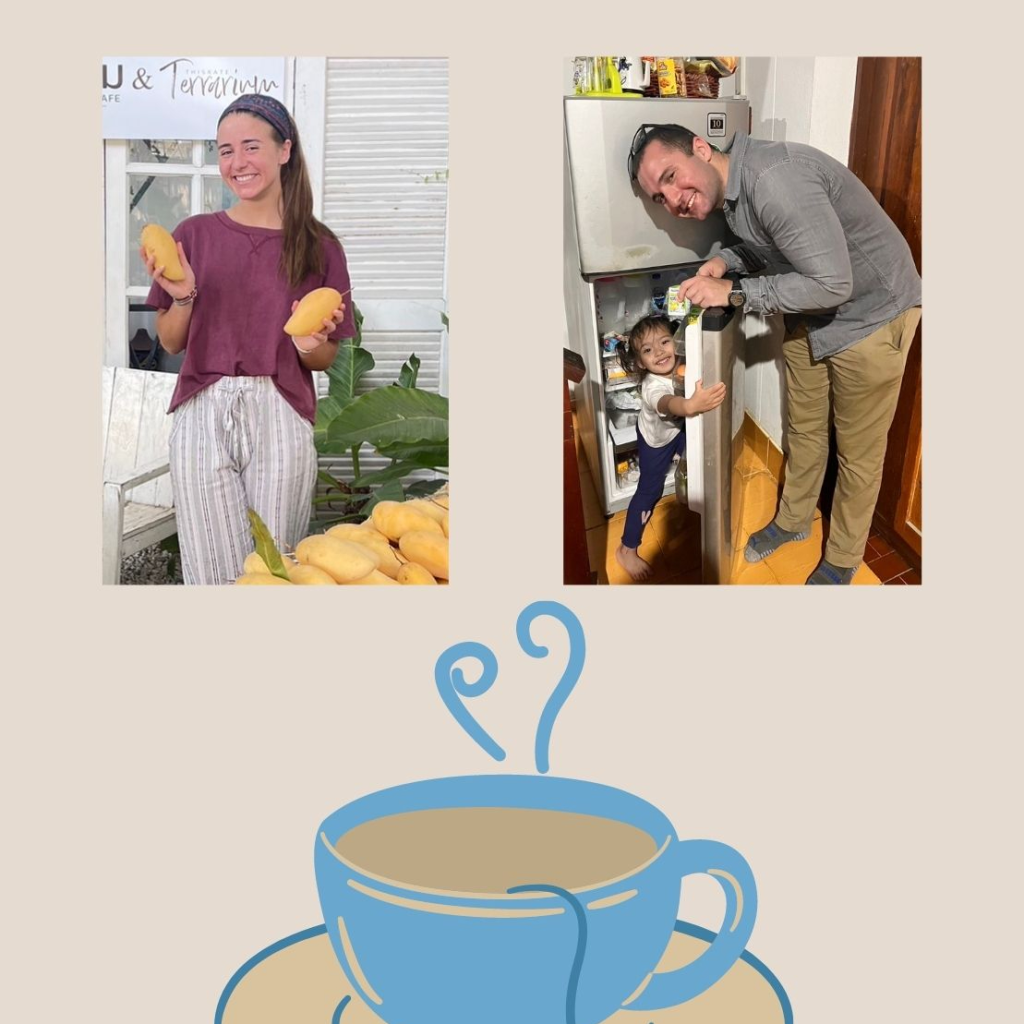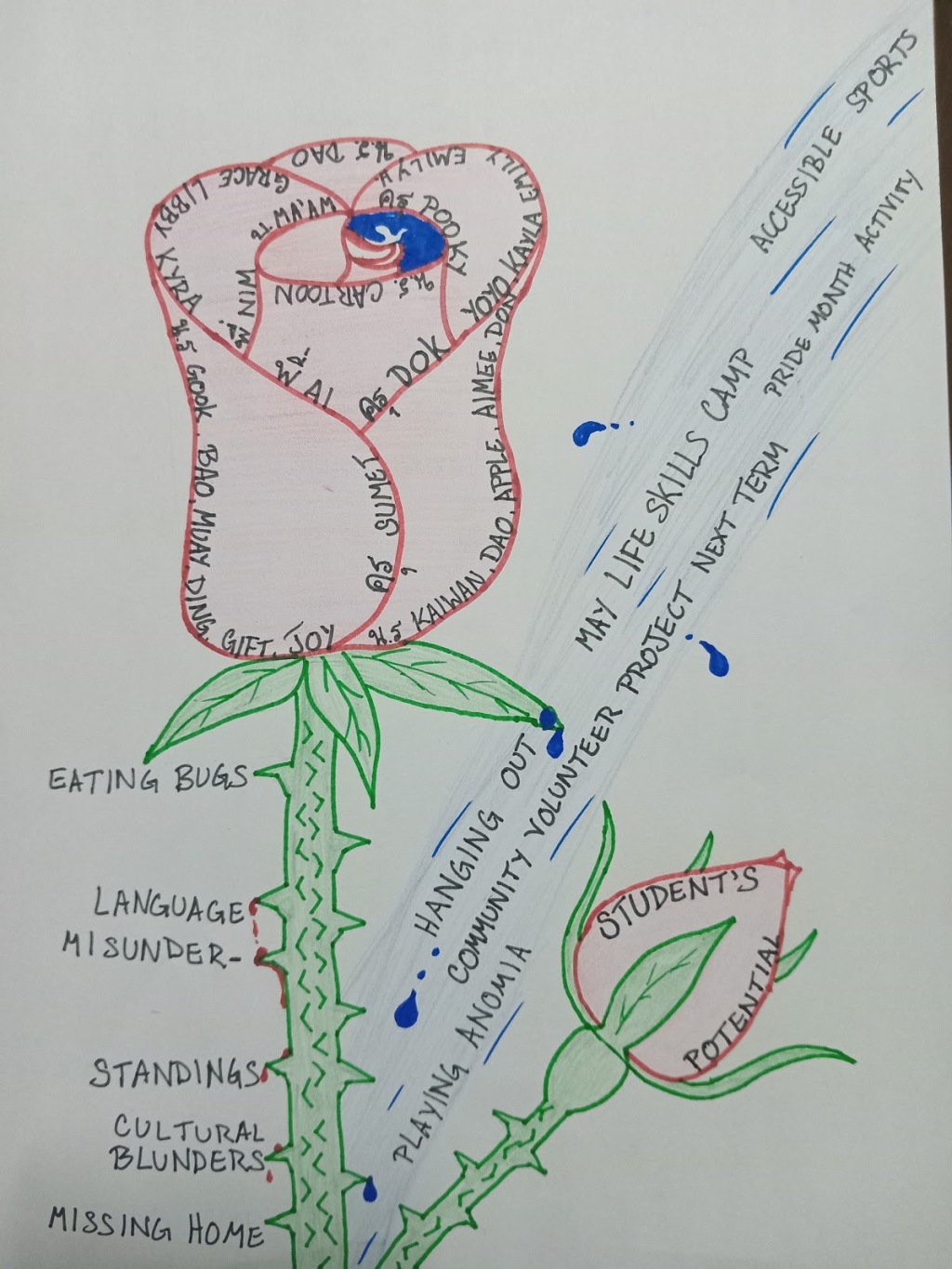
Howard Williams, Former Country Director of Peace Corps Thailand
Dear Peace Corps Volunteers: I hope all of you are doing well. The Sticky Rice editors asked me to write some reflections on Peace Corps service before I left in June and, somehow, I didn’t get to it during the transition. So, after further reflection, including two months with our newest program in Myanmar, and on my way home now to officially retire this Friday, here are some thoughts I’d like to share with you.
First of all, congratulations to you and staff on PC/Thailand receiving the Director’s Distinguished Service Post Award. Given the ongoing daily and cyclical demands and adjustments we all continuously make, it is hard to take a step back and appreciate all that has been accomplished, which is what this award has done. After 56 years, (your) PC Thailand is stronger than ever.
OK, here are three takeaways that I am sure you have heard me refer to in some way before but here goes:
- Technology and infrastructure; Peace Corps now and Peace Corps then. Yes, there are more technological and physical conveniences than in the early days but language, integration, cultural adjustment, the learning curve and creating new ways to contribute are all the same in most ways. 24/7 representation may almost be a more consistent challenge – no one could post pics or comments on my performance or behavior as a Volunteer on Facebook! And the ability to be online means you can easily and continuously live in multiple realities and time zones when we had to make sense of just the one in front of us, except for the occasional letter. This seems to me to represent a much bigger challenge now to staying present – though we probably all read 40-100 books then and now. Don’t put up with the Posh Corps label: if you get that comment from a Volunteer from a more developmentally challenged place or time, just smile and say, having AC and a fridge is not as easy as it sounds. 🙂
- Relevance. Fish farming, tube wells for safe drinking water, health care, small business skills, agricultural extension, youth programming, teaching English – which ones are more important? It depends. What are the circumstances of the population(s) being served, what opportunities are there to offer what they are prioritizing and requesting while providing a meaningful Volunteer experience? The TESS and YinD programs are in demand and place Volunteers in the heart of the community, so that’s important. As we often have reminded each other, it’s not helpful to compare the importance of a program in one context to a different program elsewhere, just like comparing across generations and time.
- Impact. One of the things we is often discuss throughout service is “impact;” is what we are doing making a difference? We often need to remind ourselves that impact(s) are far reaching in time and many are not readily observable. I mention this as it is important to reflect on the wealth of relationships and friendships you have developed and to have confidence that through those relationships, “impacts” will happen – and no doubt have been happening.
Our Director, Jody Olsen, tells the story of John Williams, who served as Country Director in Thailand for five years:
“John had been a Peace Corps Volunteer in Thailand 35 years earlier building a fishpond with the local farmers. He worked with the men removing mud and dirt day after day and month after month. He also ate, drank, and laughed with diggers, haulers, and pond designers. He became a friend, a village extended family member.
After the first year, the pond was complete and ready to be stocked. As the fingerlings were being ordered, Thailand suffered a very destructive storm with extensive flooding. As the waters receded, any sign of the pond was gone. John was devastated, as was the village. But they started over, everyone, and worked another year to rebuild the pond. Shortly before John left, with fanfare, the pond was finished, finally filled with water and 15,000 fingerlings ordered. Early next morning, with the promise of a sunny day for the delivery of the fingerlings, John walked to the pond to savor success. The pond was empty. It had a very bad leak.
John said at that moment he knew he had completely failed, let down the community which had made him one of them. “I slunk out at the end of my two years.”
Even with his project failure, John stayed close to Thailand and its culture. He worked most of the next 30 years in Thailand and married a Thai. Yet, never did he return to his Volunteer site. “I couldn’t face the community.”
A year before (he had this conversation with Jody), he decided to finally go back, on the excuse of reviewing it for a new Volunteer placement. He drove to the village without any notification, ‘I just wanted to see what it looked like, quietly.’ John had forgotten that his 6ft2in frame alone would draw attention.
As he walked by the first house at the edge of town, he heard a voice greet him using his Thai name. It had been over thirty years. That voice soon became a chorus of shouts of his name. The voices were much older but their memories were clear and the greetings heart felt. He was still one of them. ‘Why did you wait so long to return?’ was asked repeatedly. And finally, “We wanted to thank you…We want to thank you for the watermelon.’
‘The watermelon?’ John said he had no idea what they were talking about. His friends reminded him of a small watermelon demonstration plot that he had started. The subsequent watermelon farm had since become the village’s biggest cash crop. And the seemingly insignificant 100-meter ditch that John had dug by hand was the beginning of an extensive irrigation system that stabilized their annual rice production.”
I think John’s story is such a great example of how Goal 1 technical contributions interact with friendship and exchange (Goals 2and 3), and that we need a wide and long lens for considering our “impacts.”
Lastly, just a note on how Peace Corps impacts us as Volunteers. I started my professional career (if you leave aside bartending and building roof trusses 🙂 39 years ago with Peace Corps and am closing out with Peace Corps. How lucky is that? I think the lucky part was being introduced to Peace Corps as an option – the rest I think came from that experience. I hope it does the same for you, no matter how and where you choose to dedicate your energy post Peace Corps. It’s been an honor and pleasure getting to know you and support the work you are doing. I wish you all the best! Howard (chwpjafla@yahoo.com)
Check back on Monday for Meet Country Director, Gene Nixon.





Share your thoughts